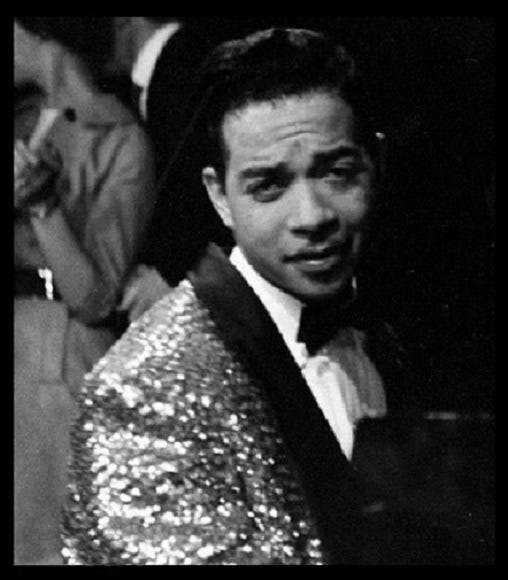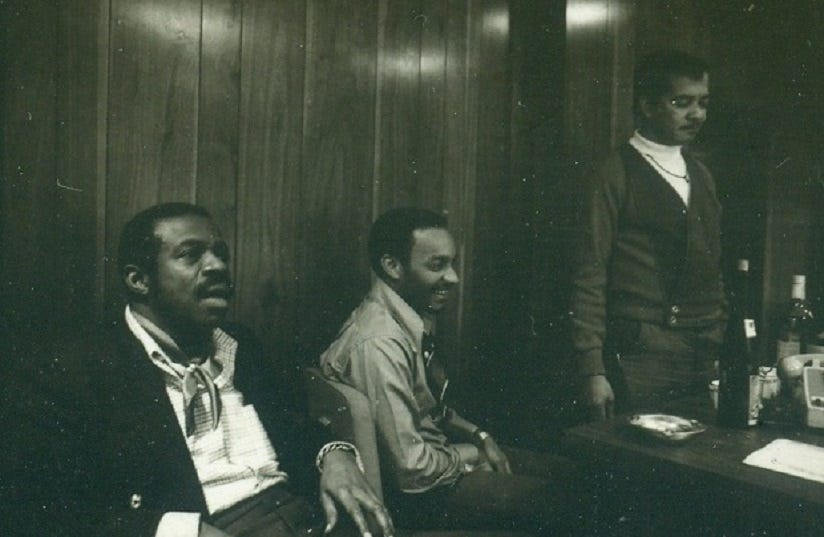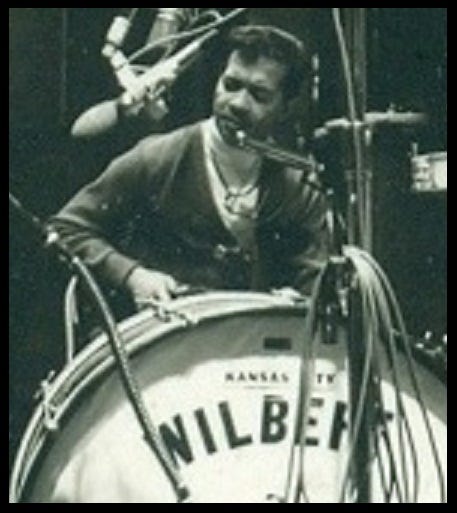Wilbert Harrison (January 5, 1929 – October 26, 1994) – Amen (1972)
The talented multi-instrumentalist who went to #1 with "Kansas City" co-wrote this superb reworked version of a spiritual and made it a gospel soul peace anthem.
View most updated version of this post on Substack.
Wilbert Harrison was a pioneering R&B artist, singer/songwriter, and multi-instrumentalist who went to #1 in 1959 with Kansas City but saw his career get highjacked by a record company's greed.
Wilbert Huntington Harrison was born in Charlotte, North Carolina. Growing up, he first fell in love with music through his family’s player piano, and learned to sing and play the piano, drums, and harmonica. While serving in the Navy he discovered calypso music in Miami, and after returning to Charlotte taught himself to play guitar and formed a group called the Calypso Boys.
He then went back to Miami, where a young Henry Stone signed him to a contract in 1953 and released his first single, “This Woman Of Mine.” Co-written by Stone, it was clearly inspired by “K.C. Loving” by Little Willie Littlefield, a song written by Jerry Lieber and Mike Stoller (originally titled “Kansas City”) and released in 1952 on Syd Nathan’s Federal Records. In 1953, Nathan invited Stone to run the DeLuxe label he had just bought out, in exchange for half the profits, and Harrison’s single was re-issued on DeLuxe.
After another single on DeLuxe, “Gin And Coconut Milk” b/w “Nobody Knows My Troubles,” Harrison moved to Newark, NJ, where he signed with Herman Lubinsky’s Savoy Records. He recorded a string of singles for the label over the next few years, starting with the R&B jam “Don’t Drop It,” released in 1954. But his relations with Lubinsky eventually soured, and the label boss allegedly ordered him out of his office at gunpoint towards the end of the decade.
A staple of Harrison’s live sets during the fifties was his own version of Littlefield’s “K.C. Loving,” which consistently brought down the house. In March, 1959, he recorded the song with its originally intended title “Kansas City” for Harlem-based producer Bobby Robinson of Fury Records. With Harrison’s inspired new arrangement, his cover proved to be a smash hit, topping both the R&B charts and Billboard Hot 100 later that spring. It spent seven weeks at #1, despite no less than five other competing versions of the song released in its wake including one by Little Richard.
Unfortunately, Harrison was still under contract to Savoy Records. Robinson and Fury were sued by Lubinsky after “Kansas City” blew up, since his contract wasn’t due to expire until August, 1959. The litigation prevented Harrison from putting out any other records while “Kansas City” was fresh in the public’s mind, and he would never again come close to its success. Leiber and Stoller’s publishing company Armo Music (the publishing arm of Nathan’s King/Federal Records) also took legal action to ensure they received all the songwriting royalties from Harrison’s hit cover, leaving his arrangement uncredited.
Harrison spent the sixties recording for several different labels such as Constellation, Roulette and one of Island Records’ early releases in 1962. He signed with Sue Records in 1969, owned by producer Juggy Murray Jones. There he tried his luck again with a re-worked version of “Let’s Stick Together,” one of his songs he may have written to follow-up “Kansas City” but remained unreleased until 1962 and failed to chart at the time.
Re-titled “Let’s Work Together,” the new version’s lyrics made the song a counterculture anthem perfectly suited for the pop charts of 1969, and it went to #32 on the Billboard Hot 100.
“Together we will stand divided we'll fall
Come on now people let's get on the ball
And work together, come on, come on let's work together, now, now people
Say now together we will stand, every boy, girl, woman, and man”
Harrison then went into the studio with Jones and recorded a full-length album, titled Let’s Work Together and released later that same year.
One of the LP’s highlights was the soul jazz masterpiece “Soul Rattler,” which featured Jones on trumpet.
Harrison had begun working with producer Marshall E. Sehorn during his time recording for Fury Records. Sehorn was Allan Toussaint’s business partner and managed Harrison beginning in 1963, when he also formed Sea-Horn Records and put out his stellar single “Near To You,” supposedly featuring Bernard Purdie on drums, b/w the upbeat jam “Say It Again.”
In 1971, Sehorn produced another full-length album for Harrison. Recorded at Charlotte’s Reflection Sound Studio, the self-titled LP came out on Buddah Records. They also recorded a pair of tracks there that ended up on a 1972 single released on Nashville’s Hot Line Records. The New Orleans-flavored homage to soul food “Get It While You Can” was the A-side, and the B-side was the superb gospel soul peace anthem “Amen.”
Originally recorded as a spiritual by the Wings Over Jordan Choir in 1953, and then covered by the Impressions in 1965, Harrison and Sehorn reworked the lyrics to “Amen” in the same socially conscious vein as “Let’s Work Together” and claimed songwriting credit. Its horns were arranged by legendary New Orleans producer and arranger Wardell Quezergue.
Further info:
“Wilbert Harrison, Rock Singer, 65,” obituary, The New York Times, October 29, 1994.
“Wilbert Harrison; Singer Had Hits With 'Kansas City,' 'Let's Work Together',” obituary, Los Angeles Times, October 29, 1994.
“Wilbert Harrison - Kansas City: The Best Of Wilbert Harrison,” liner notes by Bill Dahl, SunsetBlvdRecords.com.
#R&B #soul #funk #WilbertHarrison









Another great read. Love reading about various versions of Amen. Some great videos of Jester Hairston on YouTube discussing his writing of the original spiritual and performing it.